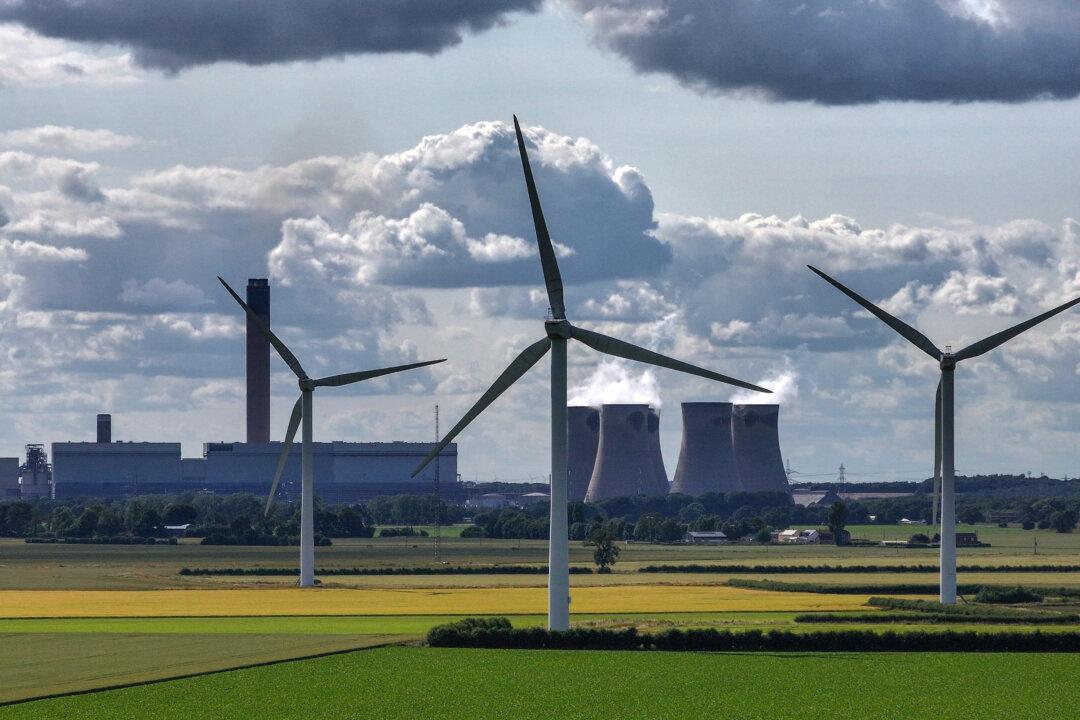A report from Net Zero Watch, a climate-sceptical research group boasting several MPs within its membership, has cast significant doubt on the cost estimates of achieving net zero emission targets by 2050, with its director labelling existing climate modelling as “imprudent.”
Net Zero Watch’s paper introduces an updated model for the 2050 electricity system, which claims to rectify these inaccuracies, rendering several previous official studies obsolete. The group’s revised model paints a starkly different economic picture, raising concerns about the feasibility of net zero goals under current technological and financial constraints.
According to Net Zero Watch, entities such as the Climate Change Committee (CCC), the National Infrastructure Commission, National Grid ESO, and the Royal Society have produced models with significant shortcomings that could lead to exorbitant costs for taxpayers, potentially amounting to hundreds of billions or even trillions of pounds.
Andrew Montford, director of Net Zero Watch, said in a statement: “The Royal Society, for example, assume that the cost of almost everything will halve, and the efficiency of almost everything will soar. It’s not impossible, but it is imprudent to assume that it will happen. If you correct the modelling errors, and use known costs and efficiencies rather than speculation about what might be available in 2050, you get a very different picture of the future.”
The paper goes further to accuse existing studies of understating the true cost of net zero by making overly optimistic assumptions about future technological advancements. Official reports, such as those from the Royal Society, have been criticised for assuming substantial reductions in costs and significant improvements in efficiencies of essential equipment in the future energy grid.
Mr. Montford said: “The costs may come down somewhat, but policymakers need to be told what it would cost if they don’t. The numbers are staggering. The failure to explain the extreme nature of the underlying assumptions is culpable.”
Royal Society Welcomes Landmark COP28 Agreement
The Royal Society, self-labelled the “independent scientific academy of the UK,” is one of the most pro-net-zero organisations, expressing strong support for the landmark international climate agreement reached at the COP28 climate summit.Nearly 200 countries convened in Dubai to agree on the world’s first “global stocktake,” aiming to intensify climate action before 2030 and keep the global temperature rise within the 1.5 degree C limit.
In December, Sir Adrian Smith, president of the Royal Society, said that it welcomed the “historic” deal.
He said, “It is now unequivocal that humans are warming the planet and causing changes to the climate, water cycle, and oceans that threaten ecosystems and human life.”
He added: “According to the [U.N. Environment Programme] emissions gap report, published in November 2023, the world is currently not on track to meet targets set out in the Paris Agreement in 2015. Achieving net zero by 2050 will require a huge transformation in the production and use of energy, away from fossil fuel dependence towards renewable and sustainable alternatives.”
Researcher Criticises Climate Models as ‘Hopelessly Unrealistic’
Climate researcher and commentator Ben Pile told The Epoch Times that, “The models they [pro-net-zero groups] have developed are attempts to simulate what the UK’s energy infrastructure will look like a decade or more into the future.”Mr. Pile highlighted that many of the technologies these models rely on, such as hydrogen storage and carbon capture and storage, “do not even exist as commercially-viable applications yet.”
Mr. Pile criticised organisations for their “hopelessly unrealistic” assumptions about the pace and scale of technological deployment. He also suggested that these models, which inform crucial political and government decisions, are not just flawed but also ideologically driven.
“Neither the models nor the organisations that produce them are fit for purpose,” Mr. Pile said, “and they seem likely to be driven by their commitments to the green ideological agenda, not the public’s or country’s interest.”
The analysis from Net Zero Watch warns that maintaining a net zero grid with today’s technology could cost households up to £8,000 annually.
As a consequence, Net Zero Watch urged the Royal Society to retract its recent report on electricity storage, deeming it misleading and potentially harmful in guiding policy decisions.
Mr. Pile called for a more inclusive and impartial debate on energy policy, one that is not “contaminated by green ideological dogma and green energy hype.” He stressed the need for “far more transparency and accountability in energy policymaking,” arguing that decisions should not be based on “green dreams hidden in black boxes.”
He added, “Our infrastructure and our economy is simply too important to base on speculative and poorly-designed models.”
Harry Wilkinson, head of policy at Net Zero Watch, told The Epoch Times: “These revelations reveal the optimistic assumptions that have disguised the true cost of net zero, and some very substantial flaws with the modelling that has been undertaken.
“Unless we see a new more realistic approach from government, the cost to the public of over-ambitious net zero plans is only going to rise and rise.”







